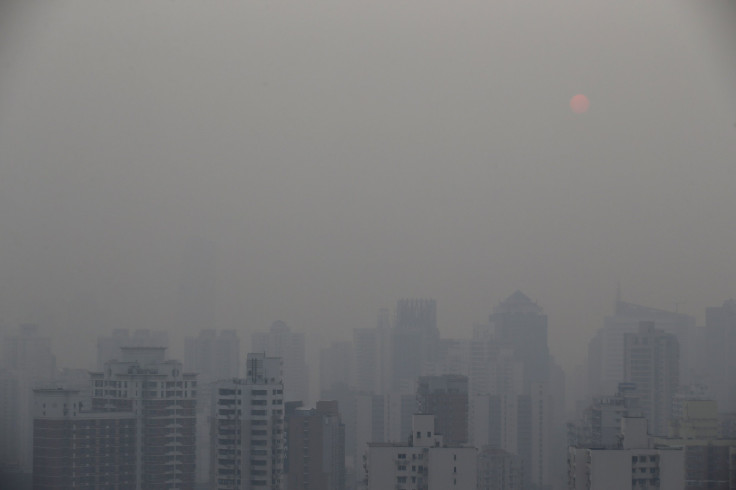Air Pollution Linked To Higher Risk Of Suicide; How Short-Term Exposure Might Change The Brain

It’s no secret by now that air pollution causes harm to our bodies. Studies have linked exposure to fine particulate matter (PM2.5) to everything from autism to irregular heartbeats. Exposure has also been associated with mental health problems, such as schizophrenia. And now, a new study finds that living in smoggy cities, full of car exhaust and industrial emissions, may up a person’s risk of committing suicide.
Researchers from the University of Utah found exposure to short-term air pollution, consisting of PM2.5 and nitrogen dioxide, increased risk of suicide in men and Salt Lake City residents aged 36 to 64. Fine particulate matter includes any kind of dust, soot, or smoke that’s smaller than 2.5 micrometers in diameter. Exposure to nitrogen dioxide, meanwhile, has been linked to airway inflammation, asthma, and other respiratory conditions after just 30 minutes to a day.
"We are not exactly sure why risk of suicide was higher in these two groups but suspect that it might be because these two groups were either exposed to higher levels of air pollution or that other additional factors make these two groups more susceptible to the effects of air pollution," said Dr. Amanda Bakian, an assistant professor of psychiatry, in a press release.
Bakian made it clear to emphasize air pollution doesn’t cause a person to commit suicide, however, it’s certainly contributes to risk. According to the American Psychological Association, studies on mice have shown pollution causes changes to the brain, including a surge of cytokines in the brain — cell-signaling molecules that regulate inflammatory response — and physical changes to nerves cells in the hippocampal region, which plays a role in spatial memory.
For the study, Bakian and her team looked at records on over 1,500 people who died by suicide in Salt Lake County between 2000 and 2010. Overall, they found these people were 20 percent more likely to commit suicide when they were exposed to higher levels of nitrogen dioxide in the two to three days before their deaths. Those exposed to PM2.5 for that same duration were five percent more likely to complete a suicide.
Their research also found men were at a 25 percent and six percent higher risk of committing suicide following short-term exposure to nitrogen dioxide and PM2.5, respectively. And when it came to those aged 36 to 64, risk of suicide following short-term exposure to nitrogen dioxide and PM2.5 was respectively 20 and seven percent higher.
“We examined the method of suicide, whether it was violent non-violent, the person’s gender, and the season in which they committed suicide,” Bakian told Newsweek, “and there was a strong relationship between air pollutants and odds of suicide in men aged 36 to 64 who committed suicide in the spring time, as well as by individuals who died by violent methods.”
Utah is among nine other states with suicide rates higher than 18 per 100,000 deaths — in 2013, there were 21.4 per 100,000 deaths — according to the American Foundation for the Prevention of Suicide. Bakian’s future research will look into “exactly what elements — such as genetic and sociodemographic factors — are responsible for increasing one's vulnerability to suicide following air pollution exposure.” In the meantime, it’s important for anyone thinking about suicide to reach out for help. Call the National Suicide Prevention Lifeline at 1-800-273-TALK (8255).
Source: Bakian A, Huber R, Coon H, et al. Acute Air Pollution Exposure and Risk of Suicide Completion. American Journal of Epidemiology. 2015.
Published by Medicaldaily.com



























